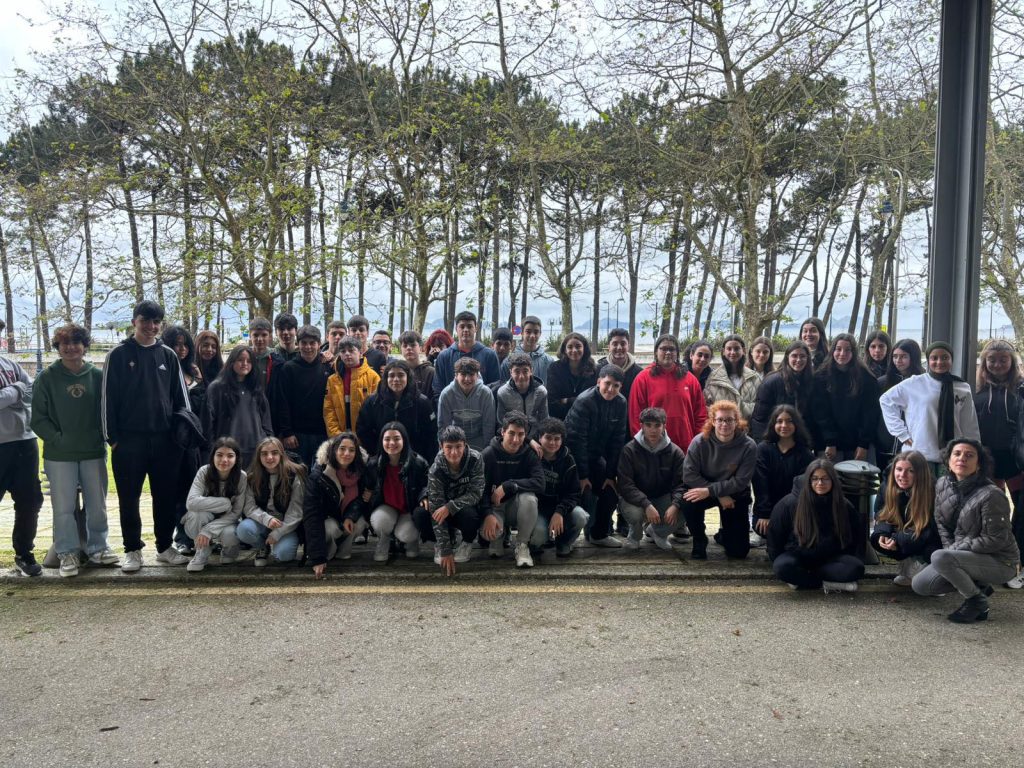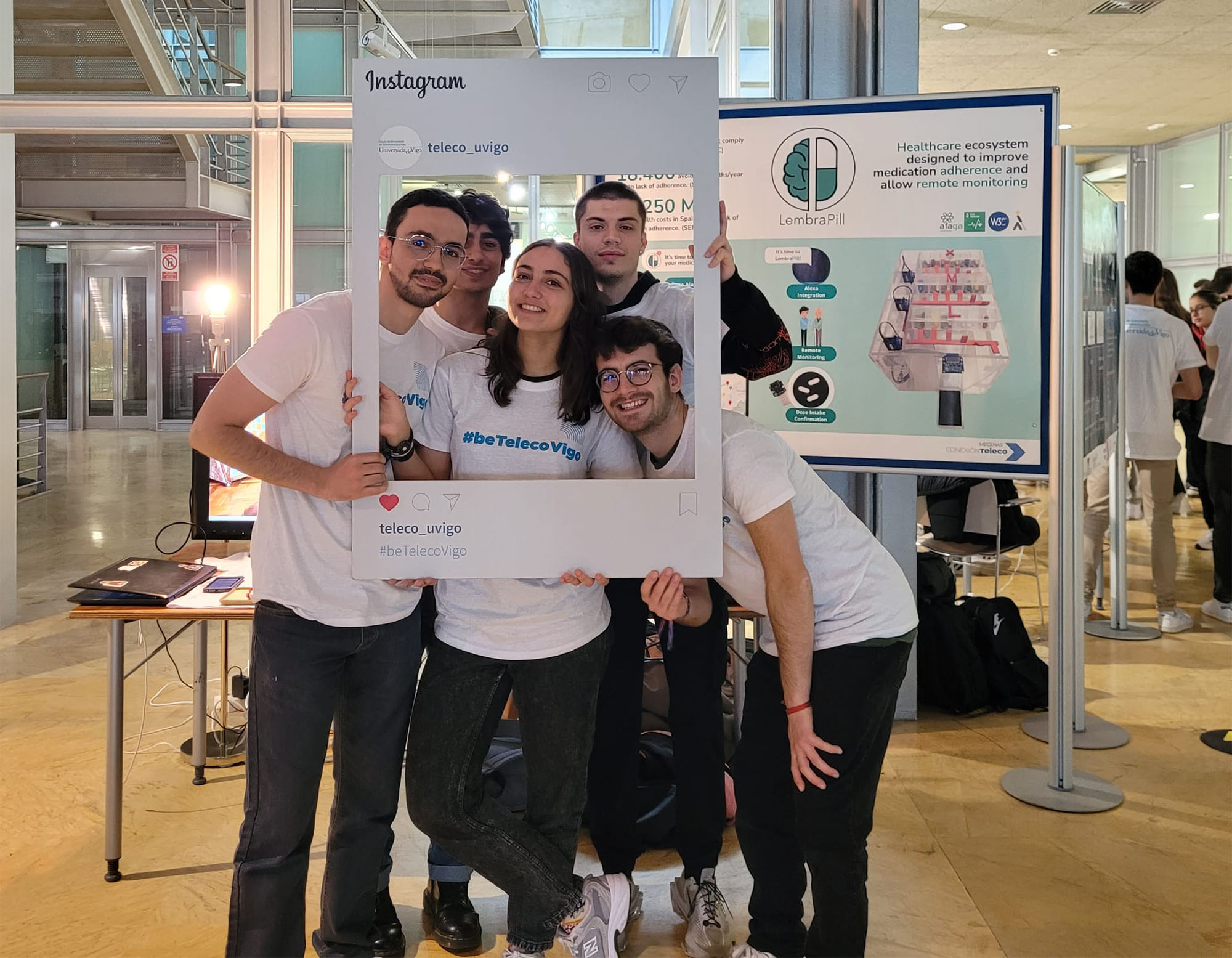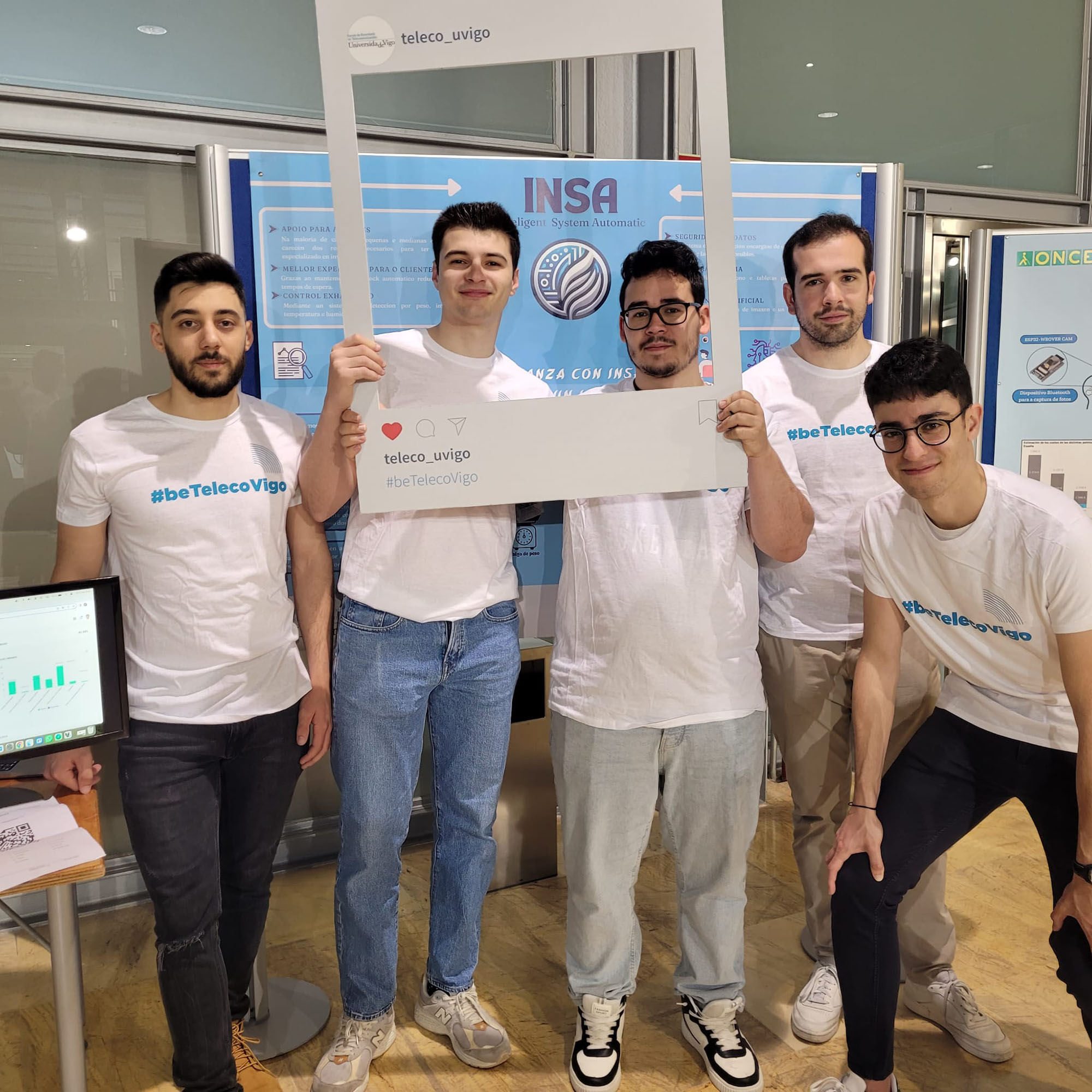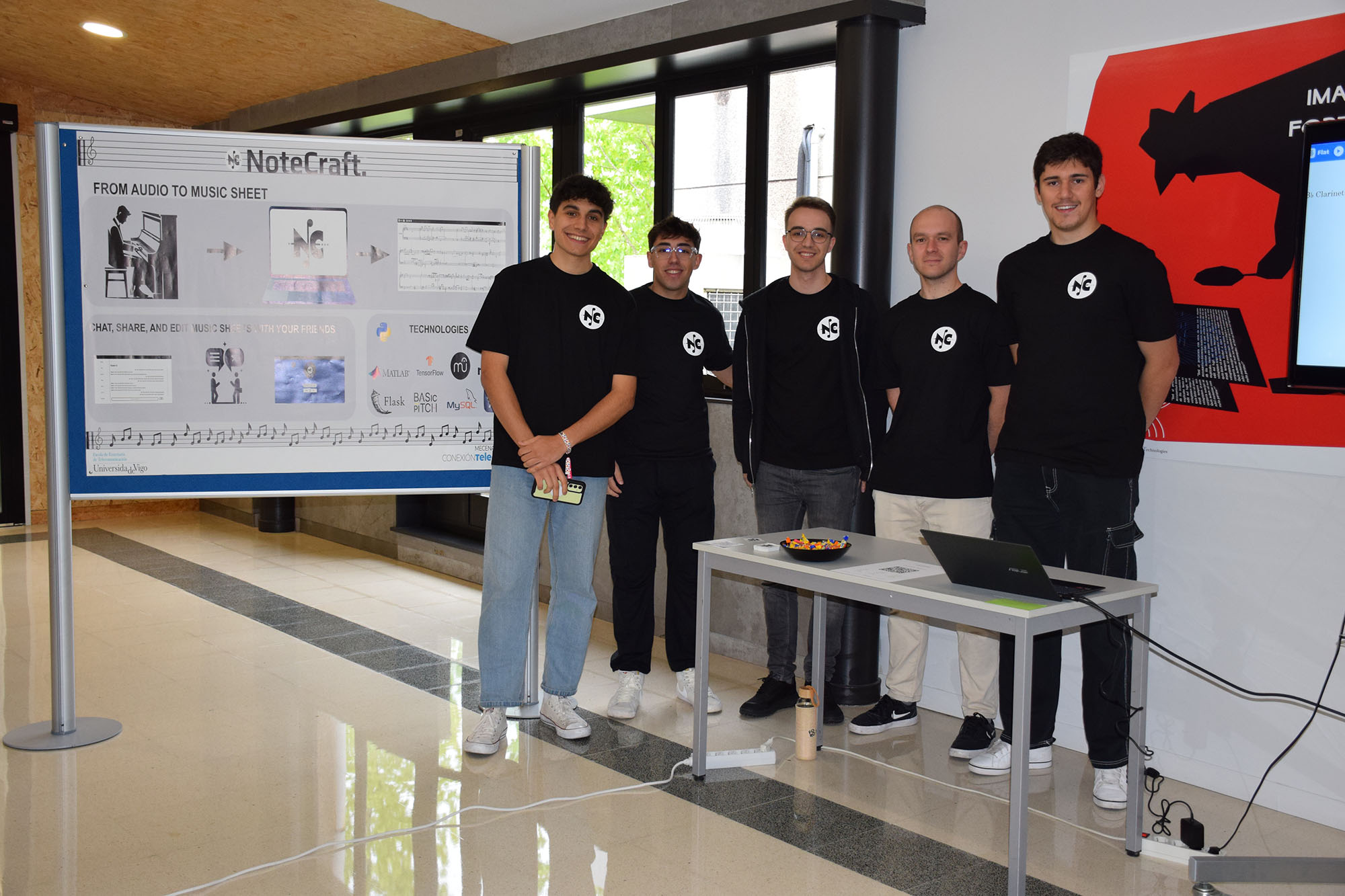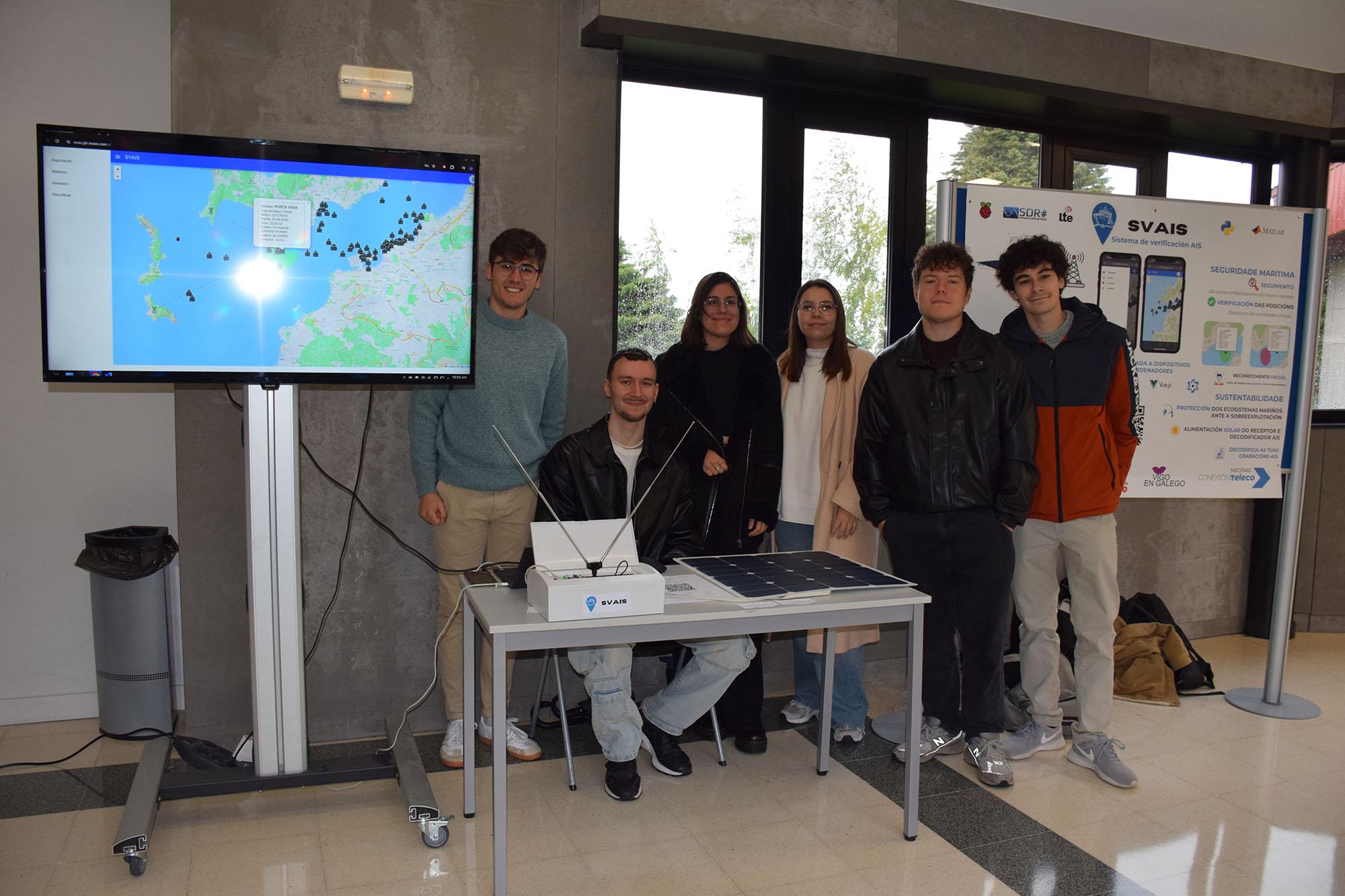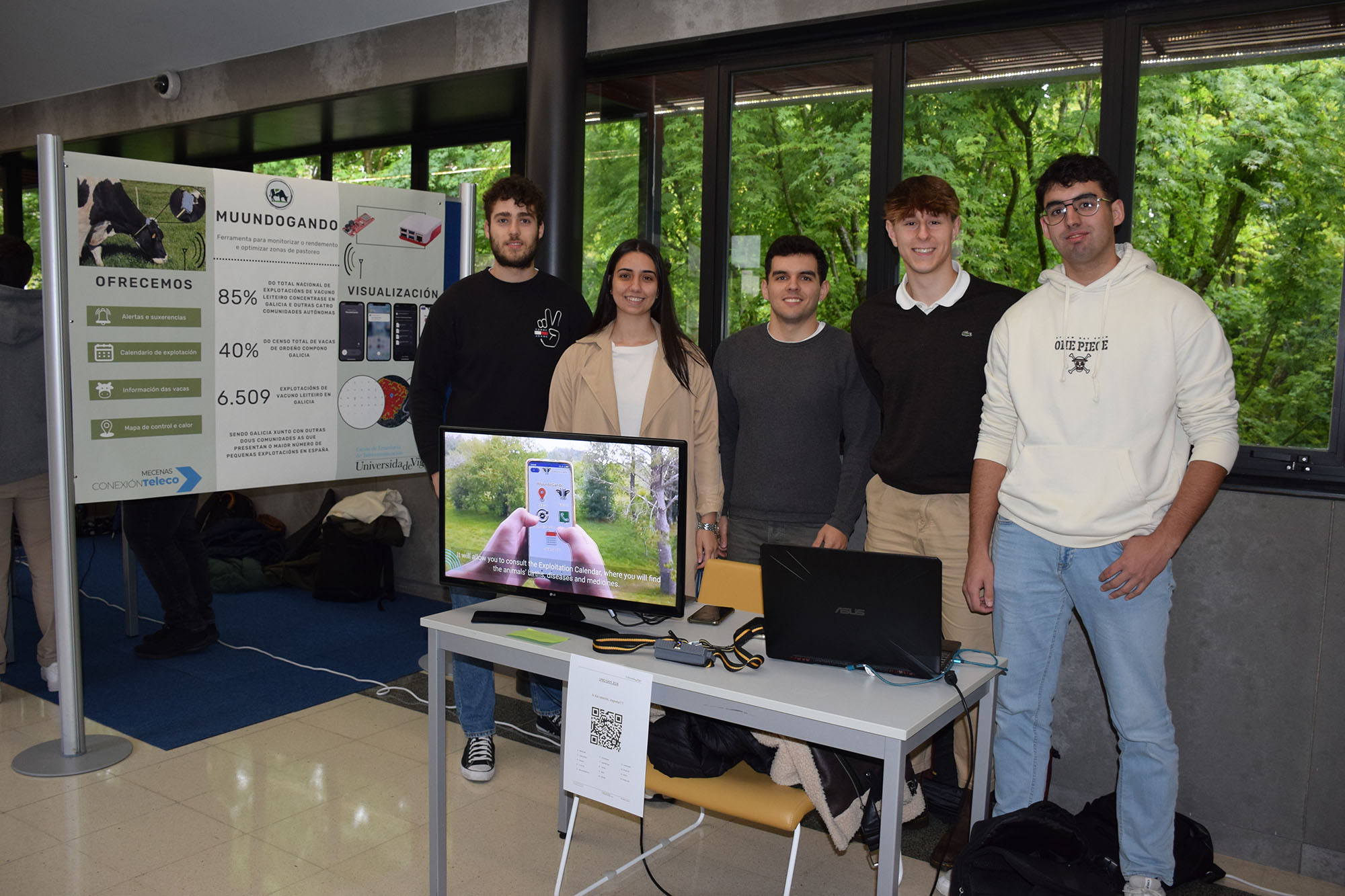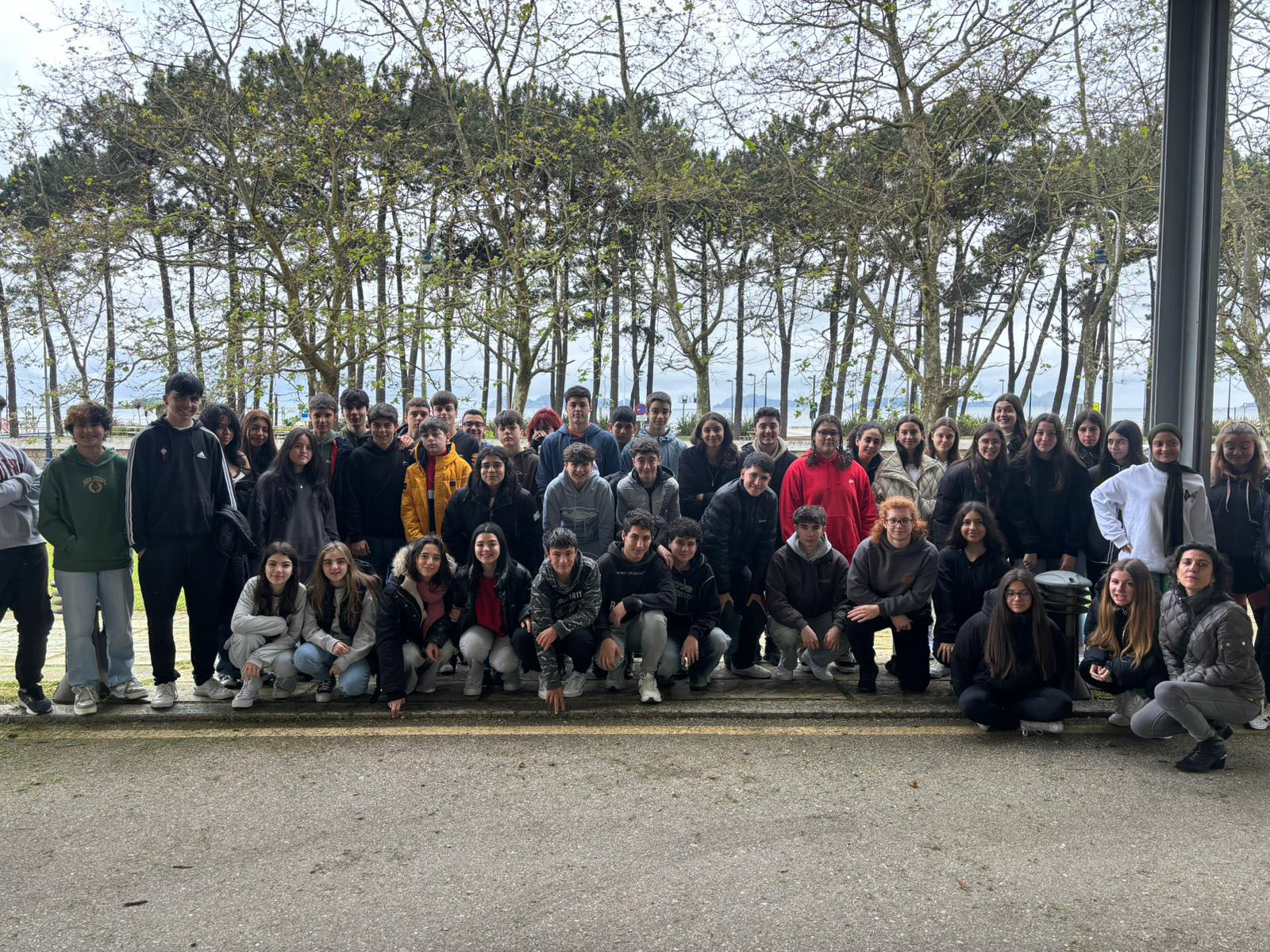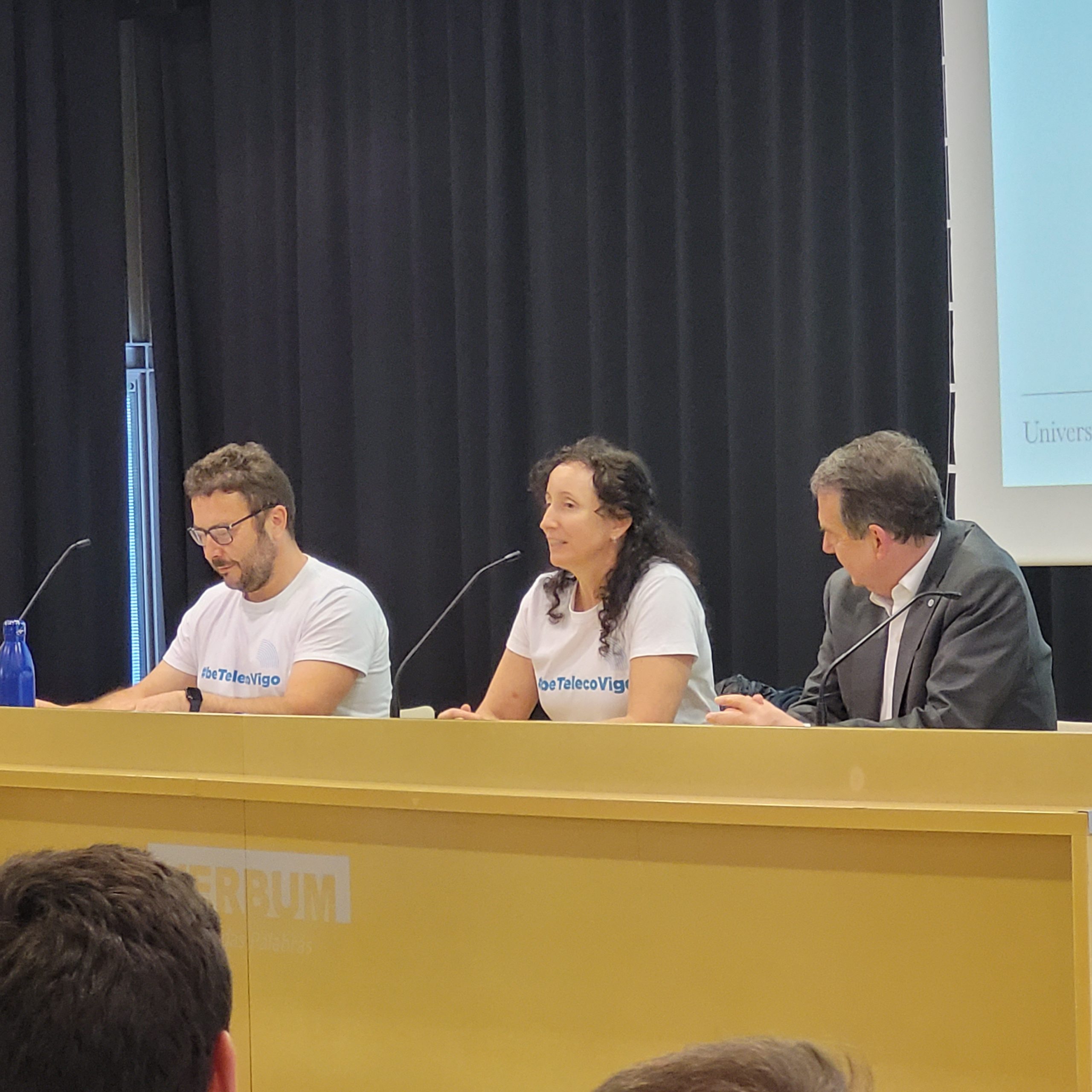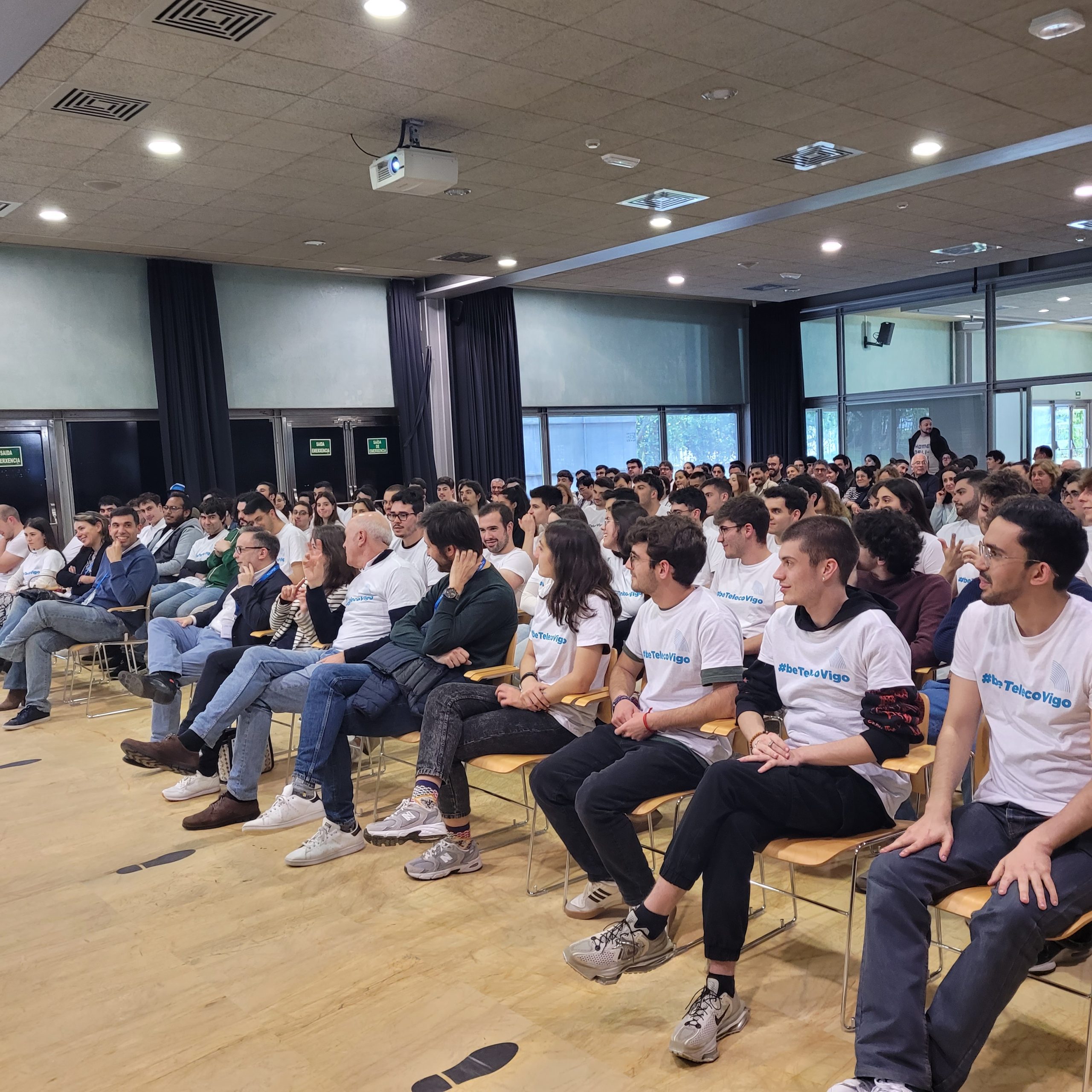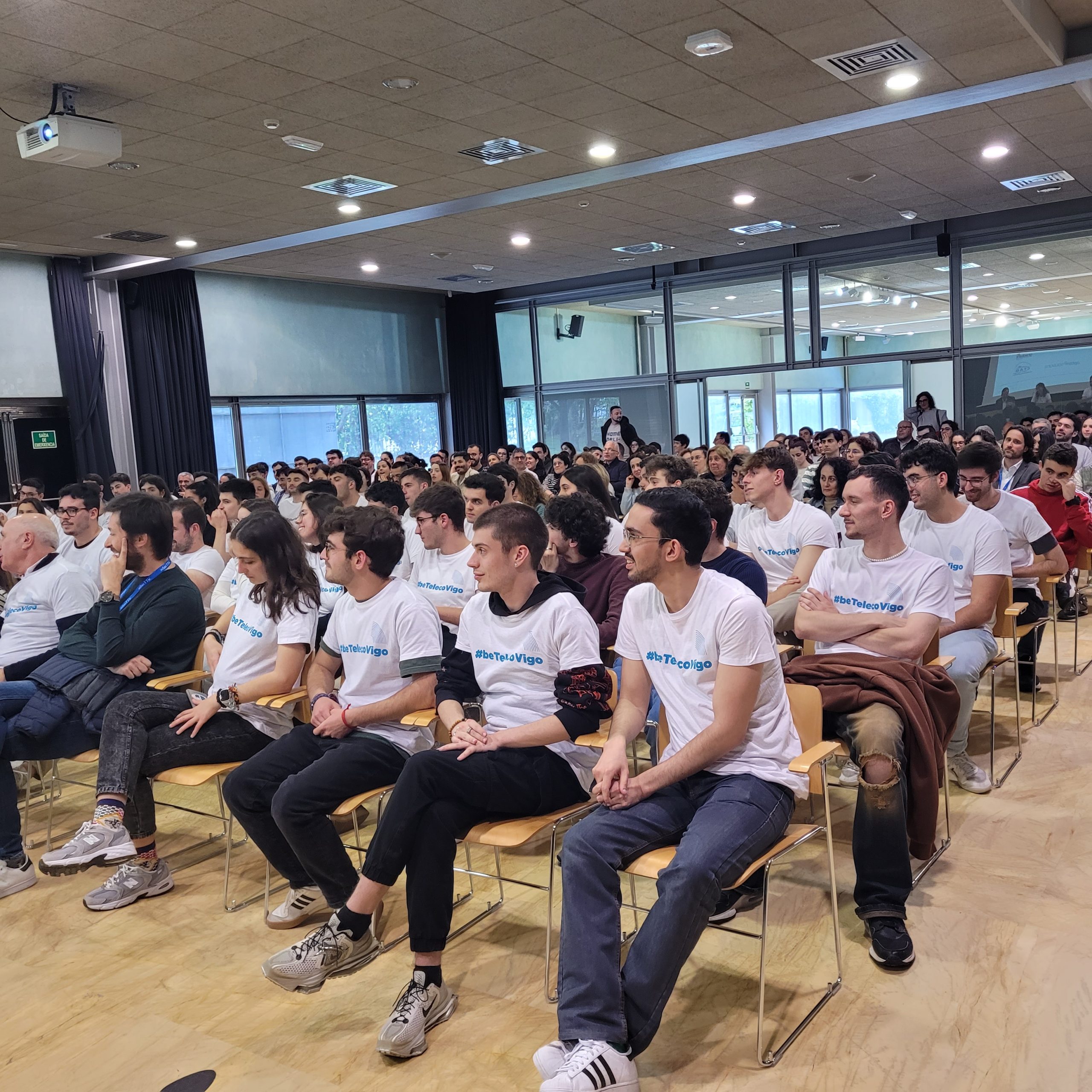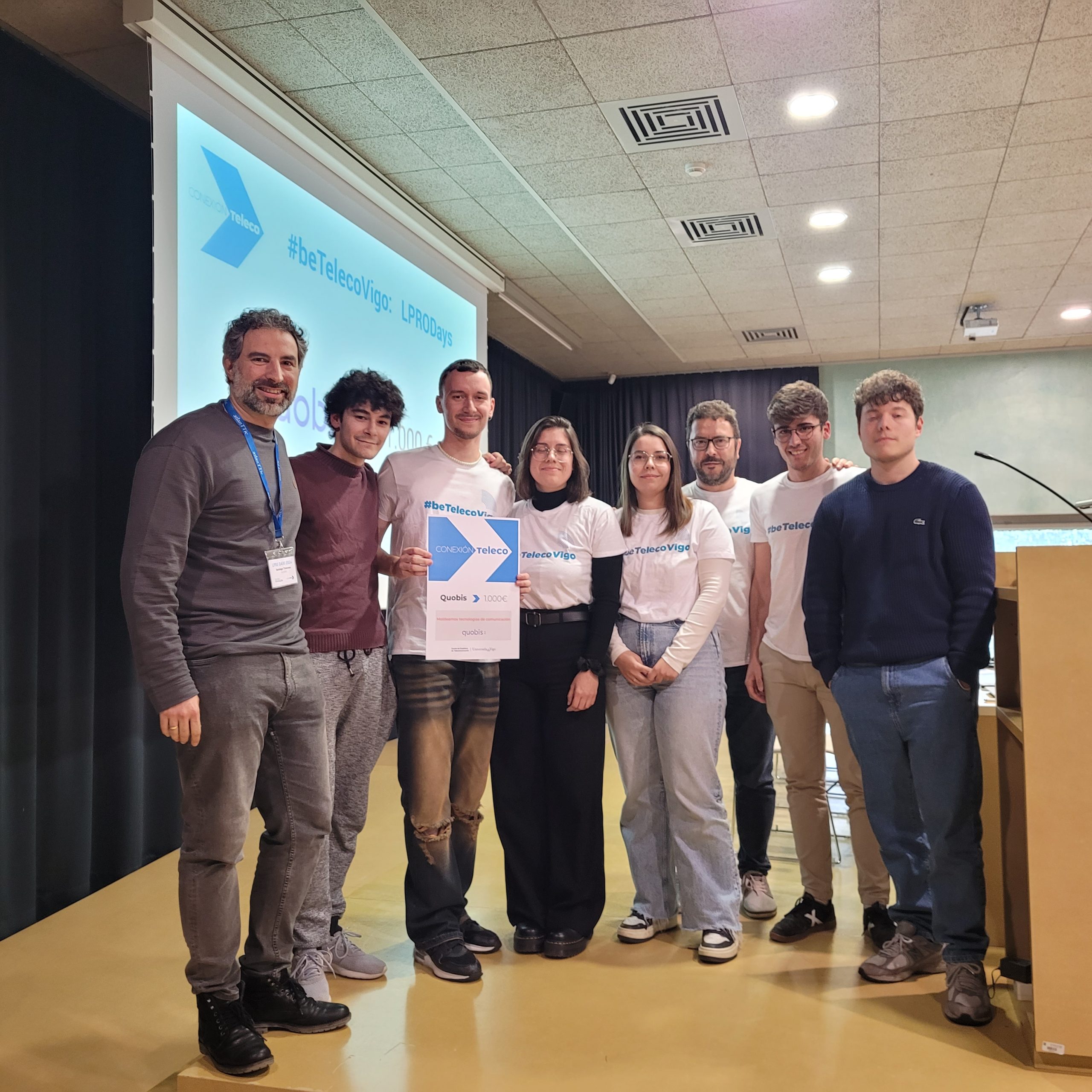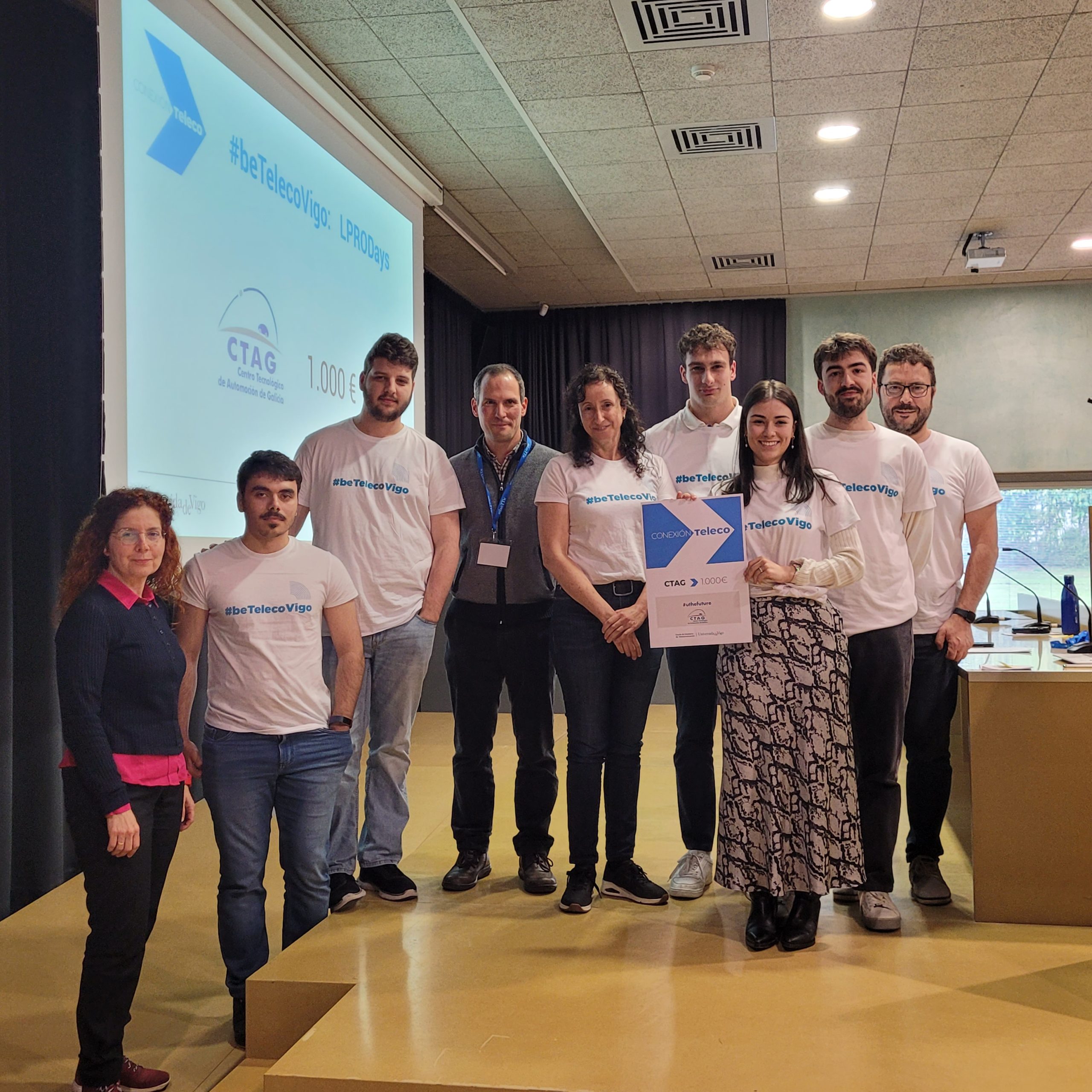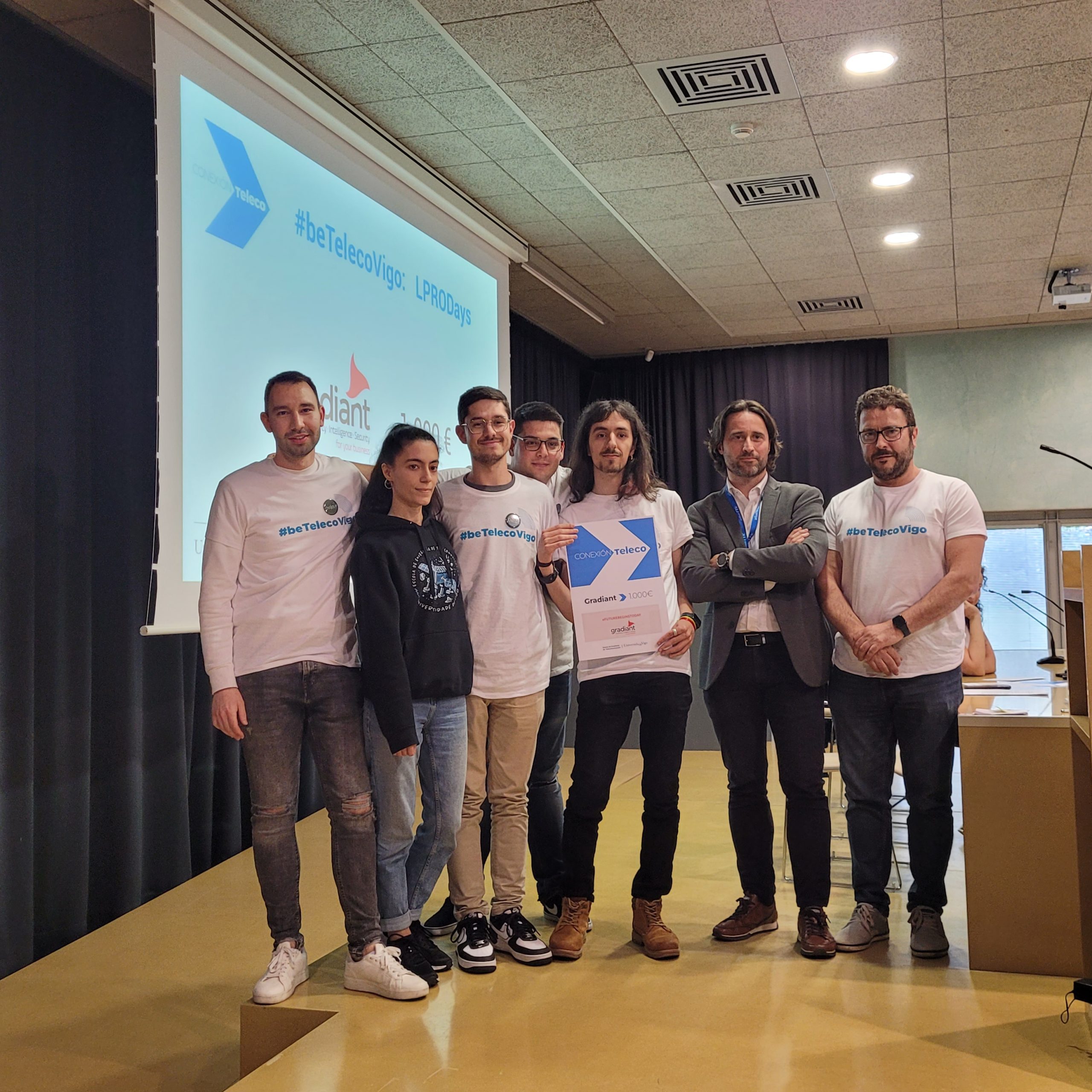The awards ceremony took place on Friday, May 3, with the participation of the mayor and the main companies in the sector
About to enter the job market, the telecommunication engineers who finish their undergraduate studies this academic year had the opportunity on Thursday and Friday to show the Galician society that they are ready to help reinforce the digital and technological development of their country. They did so at a new edition of the LPRO Days, an event conceived as a professional technological fair in which the School of Telecommunications Engineering showcases the technological projects developed by the final-year students.
This time, 14 projects are exhibited, developed in teams of 4 to 5 students, each supervised by two teachers, on various problems, themes, and technologies “that, as always, show the wide range of fields in which Telecommunications Engineering technologies are applied and the education offered at this school,” explains Professor Manuel Caeiro, coordinator of the activity, who highlights that this edition stands out mainly for the projects on the Internet of Things and assistance to people with disabilities. In addition to these, there are, in Caeiro’s words, “very Telecommunications-oriented projects” such as those that evaluate the radio spectrum or those that monitor the positioning signals of ships or diverse topics such as music, spectrometry, warehouse management, and vending machines.
On Thursday, May 2, they showcased their projects to the university community with stands set up in the main corridor of the school, and on Friday, they moved to the Verbum, where, only in the morning, they received visits from 273 students from six high schools in Vigo and its surroundings, while in the afternoon the visit was open to anyone who wanted to come to the museum, including the main companies and technological centers in this sector.
Cutting-edge technology that facilitates the daily operations of traditional businesses
Technology that makes people’s daily lives easier. This is the idea with which they started designing their projects and with which they would like the people who visit the different stands to stay. The examples are numerous, as many as prototypes exhibited at the fair.
The e-Horta team explains how this system facilitates the daily management of a vegetable garden or greenhouse thanks to a multi-platform application that facilitates the sensorization and control of various parameters, a system that facilitates self-cultivation seeking better use of natural resources and the consequent reduction of the carbon footprint by avoiding unnecessary trips to the land. Also designed for the agribusiness world, MuundoGando was presented, a tool for managing small farms in which, by storing and processing the data of the livestock’s position periodically, grazing areas can be optimized and alerts can be generated about abnormal behaviors, “it integrates with artificial intelligence so that it can make suggestions and possible solutions to the problems that arise in daily life.”
Thinking about SMEs, Insa was presented, an innovative inventory management system that allows real-time updates, as well as the automatic placement of orders to maintain optimal stock levels.
Increasing presence of the socio-healthcare field
The socio-healthcare field is increasingly present at the fair, and each edition sees more projects aimed at improving the lives of people suffering from some ailment, who are chronically ill, etc. This time, among others, LembraPill was presented, an automatic pill dispenser that is configured through an app that also includes alerts, pharmacy locator, appointment reminders… EchoVision, an artificial intelligence solution, which uses algorithms to analyze images and generate auditory descriptions to improve the independence of blind people by allowing them to understand their environment through detailed explanations.
A technological solution for wheelchairs was also presented, SafeWChair, equipped with machine learning algorithms to detect falls; another one designed for people with motor and speech difficulties that, through intentional blinking, allows the user to control the TV by changing channels, adjusting the volume, and even asking for help via a message to a family member or assistance personnel.
Awards ceremony
The awards ceremony for the best projects took place on Friday, May 3, at 6:00 p.m., and was attended by Mayor Abel Caballero; the director of the school, Rebeca Díaz, and the representatives of the conexionTeleco firms that sponsor these awards: Marine Instruments, Optare Solutions, Quobis, Gradiant, and atlanTTic, as well as a representative of Televés who presented the award for the individual baccalaureate category of the 2nd Teleco Olympiad held the previous week.
Source DUVI and Atlantico Diario.

